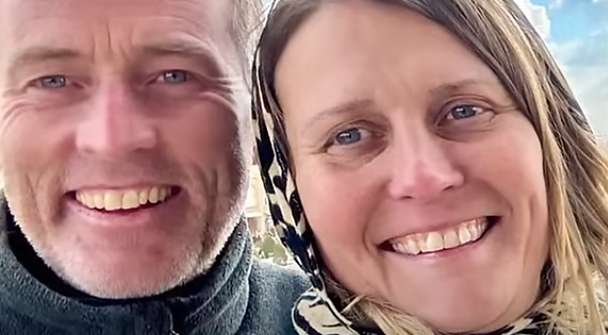British Motorcyclists Face Espionage Charges in Iran
The case of Craig and Lindsay Foreman, a British couple in their early fifties, underscores the precarious situation faced by foreign nationals traveling to Iran. Detained in January 2024 and subsequently charged with espionage, their story highlights the inherent risks associated with visiting a nation where political tensions and suspicion towards outsiders run high. The Foremans, who had relocated from East Sussex to Spain in 2019, embarked on a global motorcycle journey that unfortunately led them into the complex web of Iranian internal security. Their arrest, initially shrouded in secrecy, came to light weeks after their detention, raising concerns about the transparency of judicial proceedings in Iran and the potential for politically motivated charges.
What began as an adventurous pursuit of a new life and exploration of diverse cultures transformed into a harrowing ordeal. The couple, featured on the television program “A New Life in the Sun,” documented their experiences as expatriates in Spain, showcasing their adaptability and enthusiasm for embracing new horizons. Their motorcycle trip, intended to traverse multiple countries, included a planned five-day sojourn in Iran. Entering from Armenia on December 30, 2023, they aimed to reach Pakistan by January 4, 2024, en route to their ultimate destination of Australia. However, their journey took a drastic turn when they were apprehended by Iranian authorities, shattering their dreams of continued exploration.
Despite clear warnings from the UK Foreign Office advising against all travel to Iran, the Foremans chose to proceed with their plans. The Foreign Office cautionary statements, emphasizing the volatile political climate and arbitrary arrests of foreigners, went unheeded by the adventurous couple. Iran’s reputation for detaining individuals with even tenuous links to foreign entities, particularly dual nationals or those with foreign residency, paints a stark picture of the risks involved. The Foremans’ decision to disregard these warnings placed them directly in the path of a system known for its suspicion of outsiders and its propensity for leveraging detainees as bargaining chips in international negotiations.
The Iranian judiciary, through its spokesman, accused the Foremans of entering the country under the guise of tourism while engaging in clandestine information gathering across multiple provinces. This accusation, laden with implications of espionage, positions the couple within the context of Iran’s complex relationship with Western nations. The narrative presented by Iranian authorities depicts the Foremans as operatives working under the cover of casual travel, further fueling the perception of Iran as a nation wary of external influences.
Prior to their arrest, the Foremans actively shared their experiences on social media, expressing their enjoyment of Iran’s landscapes and the hospitality of its people. Lindsay, a life coach with a doctorate in psychology, described her time in Iran as “amazing.” Craig, a carpenter, echoed his wife’s sentiments, praising the country and its inhabitants as “lovely.” This positive portrayal stands in stark contrast to the narrative presented by Iranian authorities, highlighting the divergent perspectives surrounding their visit. The contrast between their public pronouncements of enjoyment and the subsequent accusations of espionage underscores the complexities of navigating a country where outward appearances can be deceiving and where underlying political tensions can quickly escalate.
The Foremans’ case resonates with other instances of foreign nationals detained in Iran, raising concerns about the use of such detentions as political tools. The case of Nazanin Zaghari-Ratcliffe, a British-Iranian woman held in Iran for six years, serves as a poignant reminder of the potential for prolonged detention and the emotional toll it takes on individuals and their families. Richard Ratcliffe, Nazanin’s husband, has advocated for stronger travel advisories that explicitly address the risk of hostage-taking, reflecting the harsh reality faced by some foreign nationals in Iran. The Foremans’ situation adds another layer to this ongoing debate, highlighting the need for clear and comprehensive travel warnings that accurately reflect the potential dangers faced by individuals venturing into politically sensitive regions.
Share this content:












Post Comment